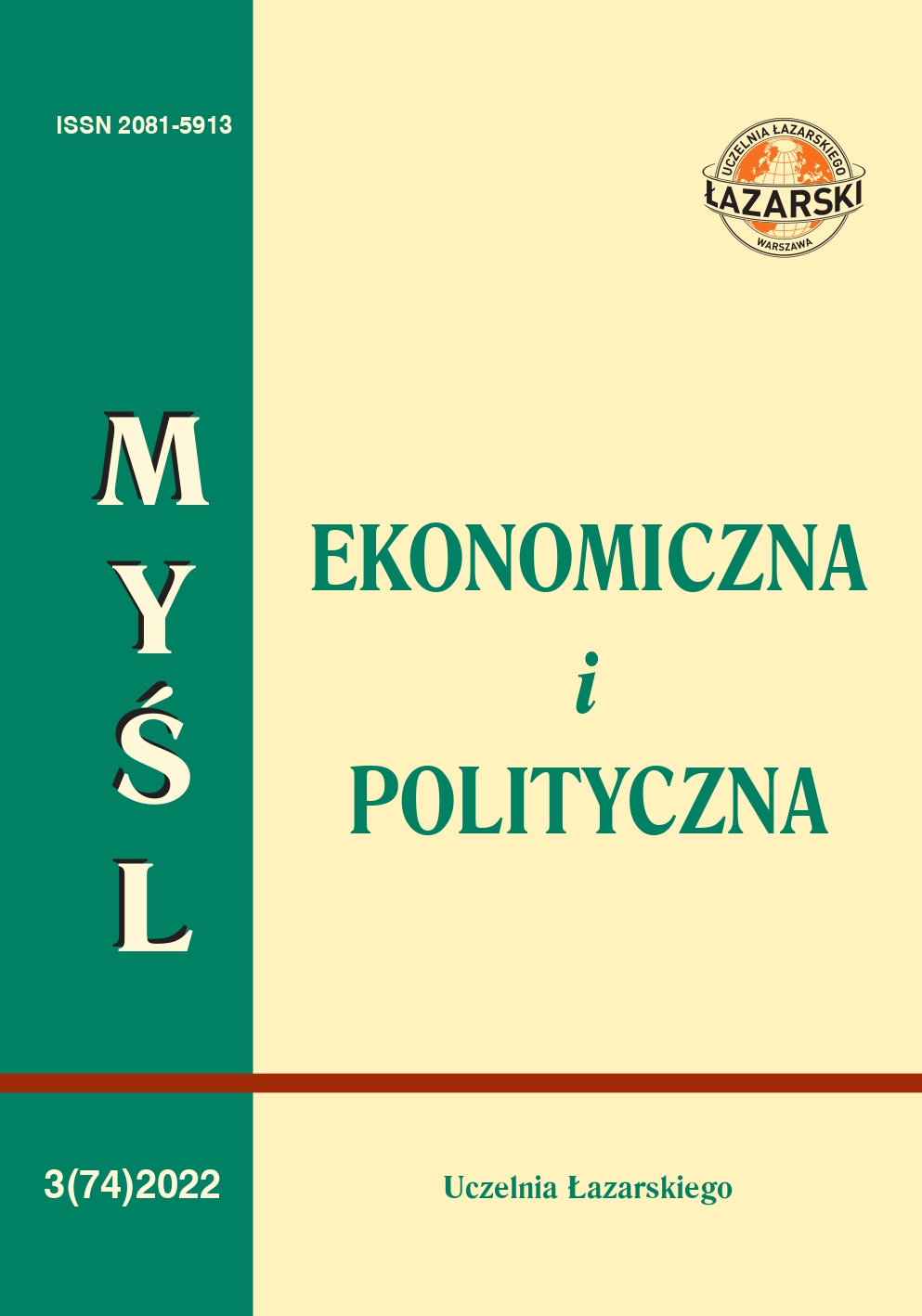Abstract
Energy security is an important goal of Poland’s energy policy. The country’s limited resources in basic energy resources, such as crude oil, necessitate imports from third countries. The main challenges of increasing this kind of security is diversification of both sources and directions of supplies. In this case a greater scope of diversification guarantees, on the one hand, the stability of crude oil supplies, and on the other, introduces a market mechanism which determines the market price of the raw material. The aim of the publication is to analyze Poland’s energy security, taking the crude oil market in the last decade as an example. It was assumed that the stability of crude oil supplies to Poland is the result of the extensive oil infrastructure which enables the diversification of sources and directions of supplies, while the degree of acceptability of crude oil prices defines both the level and the scope of crude oil price volatility. The empirical verification of Poland’s energy security was carried out using an indicator analysis (Herfindahl- Hirschman market concentration index) and appropriate econometric models (i.e. GARCH class models).

This work is licensed under a Creative Commons Attribution-NonCommercial-ShareAlike 4.0 International License.
